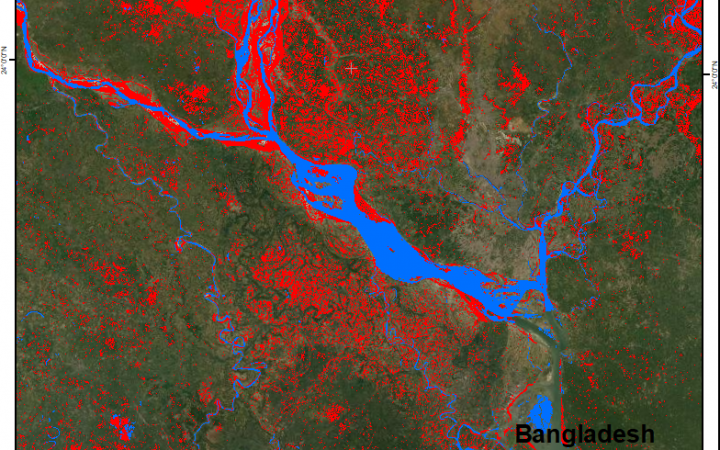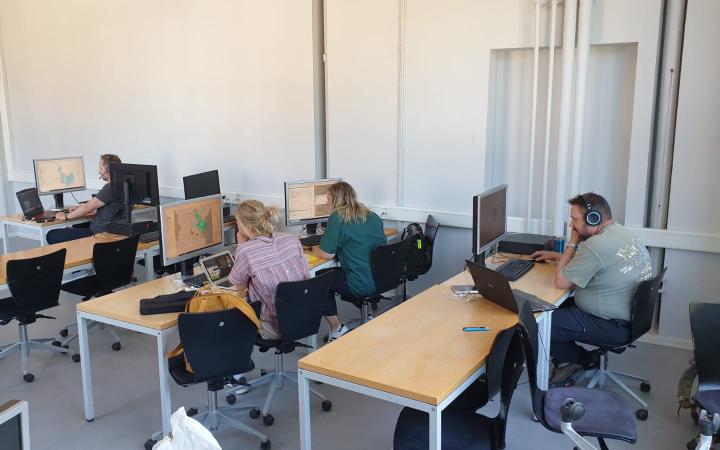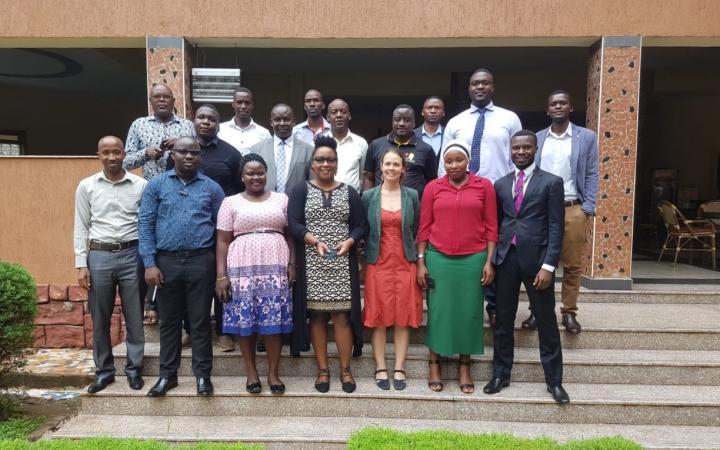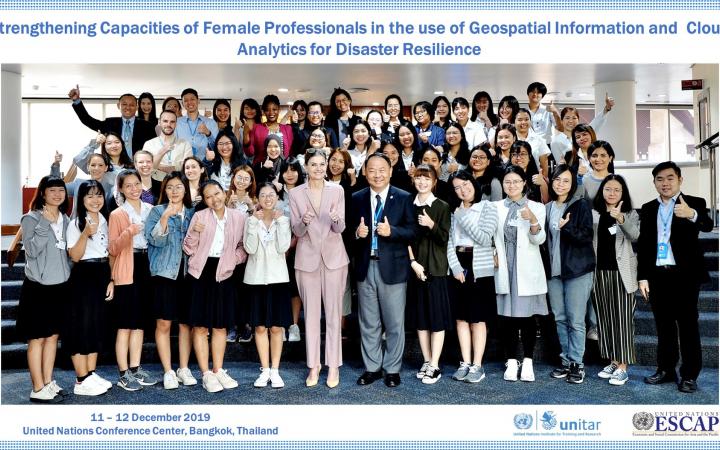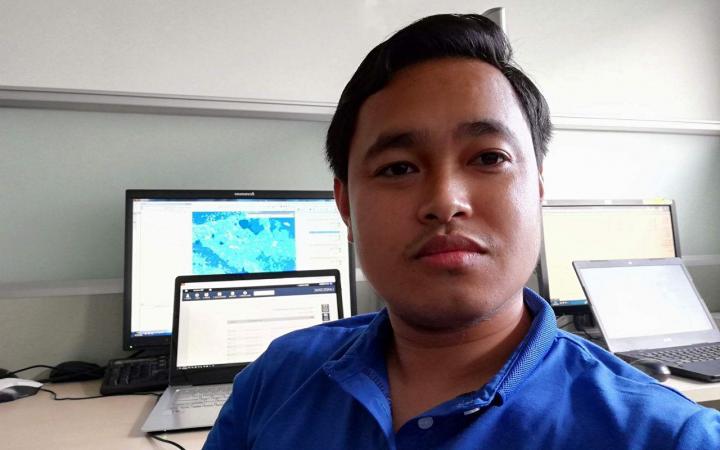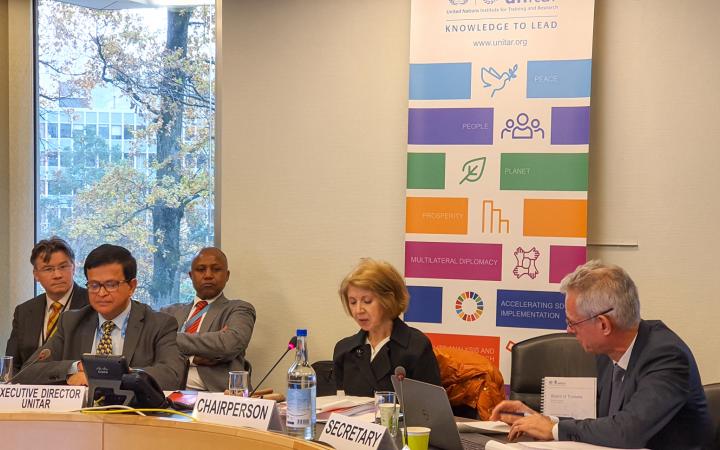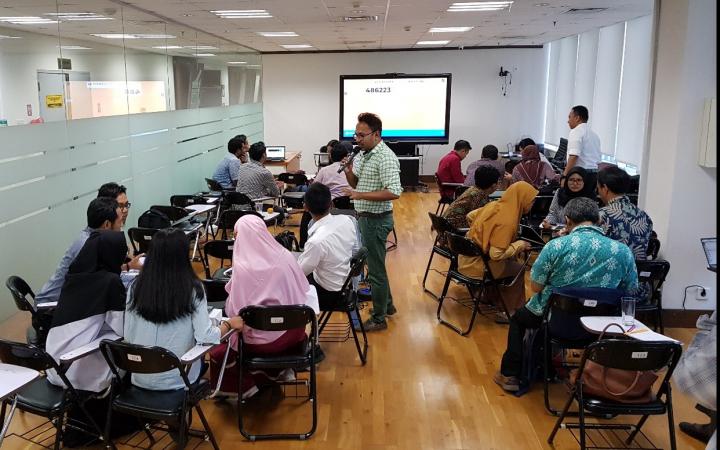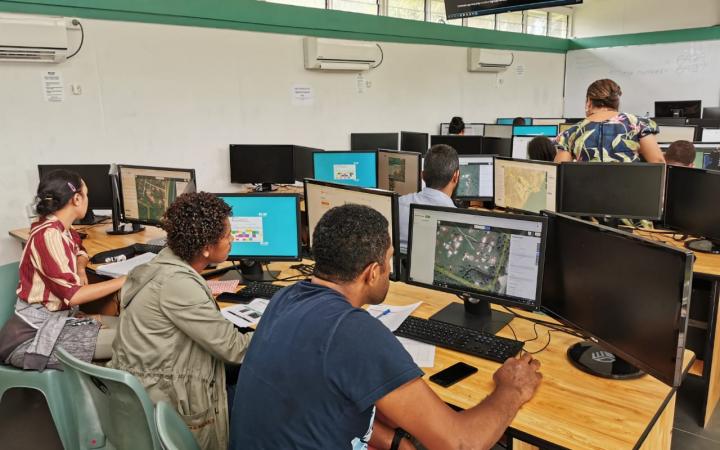Displaying 81 - 90 of 158
31 August 2020
31 August 2020, Geneva, Switzerland - Over the summer, UNOSAT introduced an Artificial Intelligence (AI) based method in its operational emergency mapping service. By reducing the process to a fraction of the time normally needed. ”This fully automated processing method is a game changer for humanitarian rapid mapping operations and a great tool for national disaster management authorities”, Einar Bjørgo, Director, UNOSAT.
9 July 2020
UNOSAT is the operational satellite applications programme of UNITAR, promoting evidence-based decision making for peace, security and resilience by using geospatial information technologies (GIT). One of UNOSAT’s main strategic objectives is to build and develop capacities of Member States to use earth observation (EO) and GIT. As a part of its capacity development activities, UNOSAT delivered a one-week training entitled “ASEAN Regional Training Course on Geospatial Big Data Applications for Sustainable Development” from 05-09 August 2019, together with regional partners in Sri Racha, Chon Buri, Thailand.
3 July 2020
3 July 2020 - UNITAR-UNOSAT and the University of Copenhagen co-organized and delivered a 3-week Masters level course entitled “Geo-information in disaster situations” ending on 3 July 2020. The beneficiaries were University of Copenhagen students registered in the Master of Disaster Management programme. Instruction during the first week focused on introductory concepts and essential software applications as well as data analysis and cartographic modelling; it was delivered by the Geography Section of the Department of Geosciences and Natural Resources Management at the University of Copenhagen.
9 March 2020
9 March 2020, Kampala - UNITAR-UNOSAT and the UN Technology Bank, in partnership with the Ugandan Ministry of Science, Technology and Innovation (MOSTI) have conducted a one-week training course from 2 to 6 March 2020 in Kampala on the use of Geospatial Information Technologies (GIT) to reduce the impact of disaster situations.
13 January 2020
The UNITAR Operational Satellite Training Programme (UNOSAT) contributes to human security, peace and socio-economic development by providing integrated satellite-based solutions for governments as well as relief and development organizations within and outside the UN system.
18 December 2019
UNOSAT in collaboration with the United Nations Economic and Social Commission for Asia and the Pacific, UNESCAP, have conducted a training with the aim to strengthen a gender-responsive approach to Disaster Risk Reduction.
18 December 2019
With his increased technical and analytical understanding, Sopheap decided to create the agricultural geographic information webpage, where he could share everything he learned about the use of GIS in agriculture.
4 December 2019
29 November 2019, Geneva, Switzerland - The Board of Trustees of the United Nations Institute for Training and Research (UNITAR) concluded its Sixtieth Session, which convened from 28 to 29 November 2019. Key decisions of the session include adoption of the $88 million programme budget for 2020-2021 and the integration into UNITAR of The Defeat-NCD Partnership with a biennial budget of $31 million.
18 October 2019
Indonesia is in one of the world’s most natural disaster-prone areas and is at risk to multiple hazards, including flooding, earthquakes, landslides, tsunami, volcano, and cyclone.
14 – 18 October 2019, Jakarta, Indonesia - Throughout 2018, Indonesia's National Disaster Mitigation Agency (BNPB) recorded almost 2,000 natural disasters that claimed more than 4,000 lives and displaced approximately 3 million people. Disaster events occurred in 2018 also caused severe financial losses up to $billion according to Indonesia’s National Disaster Mitigation Agency. The Government of Indonesia spends $300 to $500 million annually on post-disaster reconstruction.
14 – 18 October 2019, Jakarta, Indonesia - Throughout 2018, Indonesia's National Disaster Mitigation Agency (BNPB) recorded almost 2,000 natural disasters that claimed more than 4,000 lives and displaced approximately 3 million people. Disaster events occurred in 2018 also caused severe financial losses up to $billion according to Indonesia’s National Disaster Mitigation Agency. The Government of Indonesia spends $300 to $500 million annually on post-disaster reconstruction.
13 September 2019
13 September 2019, Suva, Fiji – Disasters caused by natural hazards and climate change affect about 350 million people on average each year, according to the Global Humanitarian Overview 2019 (UN-OCHA, 2019). The human cost tends to be higher in vulnerable areas of the Pacific SIDS, often due to the limited data available for preparedness and early response actions.


